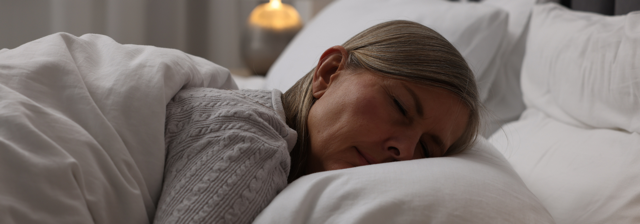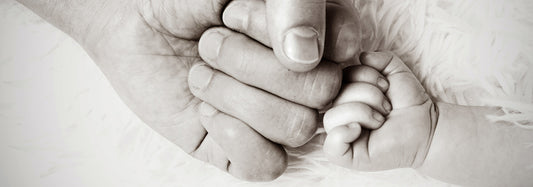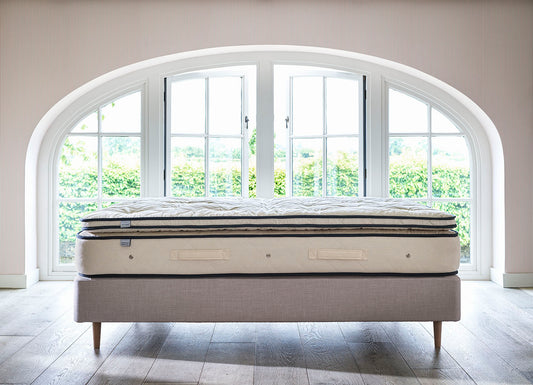Insufficient sleep duration, defined as less than seven hours per night, has been linked to heightened risk of mortality and reduced life expectancy (1). Is this association explained by a link with sleep and biological ageing? We asked our resident sleep expert, Christabel, to investigate.
People often associate ageing with appearance of the skin but this is just one consequence. Ageing involves systematic accumulation of cellular damage with a decline in the ability to repair. Unlike chronological age, biological age is defined by physical characteristics and functioning. These can be measured by certain health markers taken from DNA, the blood and cells involved in immunity, metabolism or respiration.
Studies have shown that these biological markers are reliable predictors of someone developing certain health conditions including coronary heart disease, diabetes type 2 and dementia (2,3,4). Interestingly research has repeatedly shown that insufficient sleep is associated with an increased risk of developing all of these diseases (5).
Unsurprisingly, a study last year found that short sleep is also associated with accelerated biological ageing (6).
But these association studies cannot prove that short sleep causes ageing without further research, they prove a link but not the direction or whether the link is due to another factor. We know that as we age, the biological processes that regulate sleep weaken and this affects quality and quantity. So, as we age, we become less able to sleep and this leads to faster ageing.
There’s a surprising finding that has come out of this research: sleeping more than nine hours is also linked with accelerated ageing, health issues and reduced life expectancy. There seems to be a sweet spot between seven to nine hours. That’s not to say a lot of sleep is necessarily bad for you, but excessive sleep may indicate an underlying health problem.
That all sounds a bit scary so here’s the flip side of the story: if you focus on your sleep habits now, you could slow down ageing.
- Start with getting enough hours consistently – aim for 7-9 hours depending on what feels best for you – and keep the timing as consistent as possible, especially the wake-up time.
- Next, focus on what will delay your sleep and what will encourage you to sleep – high or late caffeine intake, poor work/ life balance, late meals, stimulating activities before bed, tech in bed, versus slowing down in the evening, eating earlier, stopping work and tasks, putting screens away to read or listen to something before bed, tech-free bedrooms.
- Also, consider sleep quality – alcohol, excessive evening fluid, stress, late light exposure, noise, heat, pain and discomfort can be detrimental while morning light, exercise, focusing on health and wellbeing, a bedroom that is dark, quiet, cool, calm and comfortable, these can all be beneficial.
References
- Gallicchio, L. & Kalesan, B. Sleep duration and mortality: A systematic review and meta-analysis. J. Sleep Res. 18(2), 148–158. https://doi.org/10.1111/j.1365-2869.2008.00732.x (2009).
- Lind, L., Ingelsson, E., Sundstrom, J., Siegbahn, A. & Lampa, E. Methylation-based estimated biological age and cardiovascular disease. Eur. J. Clin. Invest. https://doi.org/10.1111/eci.12872 (2018).
- Cortez, B. N., Bahour, N. & Aguayo-Mazzucato, C. Biological age in diabetes and precision medicine. Ageing (Albany NY) 14(11), 4622–4623. https://doi.org/10.18632/ageing.204123 (2022).
- Knobel, P., Litke, R. & Mobbs, C. V. Biological age and environmental risk factors for dementia and stroke: Molecular mechanisms. Front. Ageing Neurosci. 14, 1042488. https://doi.org/10.3389/fnagi.2022.1042488 (2022).
- Watson NF, Badr MS, Belenky G, et al.. Joint consensus statement of the American Academy of Sleep Medicine and Sleep Research Society on the recommended amount of sleep for a healthy adult: methodology and discussion. J Clin Sleep Med. 2015;11(8):931–952.
- You, Y., Chen, Y., Liu, R. et al. Inverted U-shaped relationship between sleep duration and phenotypic age in US adults: a population-based study. Sci Rep 14, 6247 (2024). https://doi.org/10.1038/s41598-024-56316-7



